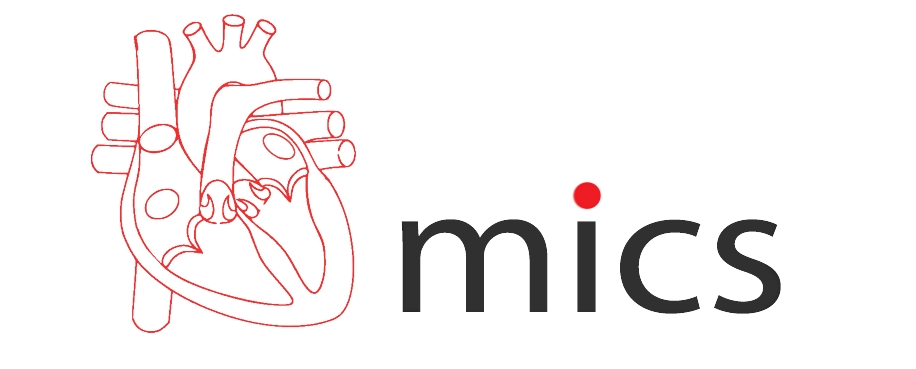Minimally Invasive Bypass Surgery: Overview
Minimally Invasive Bypass Surgery is rapidly gaining popularity, globally as well as in India in the past one decade. In Minimally Invasive Bypass Surgery, doctors use advanced techniques and instruments to operate with less damage to the body in comparison to open-heart surgery. Minimally Invasive Bypass Surgery has a much faster recovery time, lesser pain and scarring.
Now, without any further delay, let’s understand the meaning of Minimally Invasive Bypass Surgery.
Minimally Invasive Bypass Surgery is a term for heart procedures performed through a small incision. The approach is to make heart surgery an acceptable therapy that brings the least amount of discomfort or disruptions. Unlike open heart surgery, Minimally Invasive Bypass Surgery is less painful and the recovery period is shorter.
Types of Minimally Invasive Heart Surgeries:
There are several types of Minimally Invasive Bypass Surgery. Let’s have a look at them one by one:
1. Coronary Artery Bypass Grafting: Coronary artery disease (CAD) is the most common type of heart disease. It can be treated through coronary artery bypass grafting. During this surgery, a small incision is done without cutting any bone, using specialised instruments. The blood vessels or grafts are grafted above and below the blocked area of a coronary artery. This allows blood to flow around the obstruction.
2. Aortic Valve Replacement: During this procedure, a diseased aortic valve is replaced with an artificial valve. The most common reason behind the replacement of the aortic valve is that it gets narrowed or starts to leak. Different kinds of procedures are available for aortic valve replacement and the choice depends upon the patient’s needs, available technology and surgeon’s skills.
3. Mitral Valve Repair/Replacement Surgery: Mitral Valve Repair surgery is done to repair or replace a mitral valve with an artificial valve. This ensures proper blood flow into the left ventricle and then further flow out to the body normally, without putting extra stress on the heart.
4. Atrial Septal Defect Repair: An atrial septal defect (ASD) is a congenital heart defect. With this defect, the muscular wall separates the two upper chambers (atria) of the heart. With Atrial septal defect repair, the hole in the atrial septum is fixed.
5.Tricuspid Valve Repair/Replacement Surgery: During tricuspid valve repair surgery, the surgeon may reshape the valve, or repair or separate fused valve leaflets. The surgery is done through a small incision on the side of the chest. In case, the tricuspid valve is severely damaged, then one may need tricuspid valve replacement surgery. During this procedure, the doctor will remove the damaged wall and replaces it with the artificial one that is created either mechanically or using biological tissues.
What are the benefits of Minimally Invasive Bypass Surgery?
This kind of surgery provides equivalent outcomes to traditional surgery, but here are the Minimally Invasive Bypass Surgery benefits like faster recovery, less pain, one can leave the hospital in fewer days, etc.
Let’s understand them in detail:
1. Less Pain: As involves a large incision; the chances of discomfort are high. However, with Minimally Invasive Bypass Surgery, patients experience much pain following the procedure.
2. Less scarring: You can expect to have a large scar in the middle of your chest after healing from open heart surgery. With Minimally Invasive Bypass Surgery, on the other hand, patients have much less scarring and have an improved cosmetic result.
3. Faster recovery: Minimally Invasive Bypass Surgery allows patients to start their regular activities and get back to the work as soon as possible.
4. Shorter stay in hospital: People who undergo Minimally Invasive Bypass Surgery returns home after 4th day of the surgery. Whereas, patients who opt for open heart surgery typically take 8-10 days.
5. Minimal complications: Chances of experiencing complications are lower with minimally invasive heart surgery. But, with open heart surgery, patients may experience a risk of infection and bleeding.
6. Decreased blood loss: Minimally Invasive Bypass Surgery doesn’t lead to much blood loss. Whereas, in open heart surgery, the volume of blood drained after the operation is quite higher.
Other benefits include a better survival rate, lower risk of depression and fewer complications in the kidney or liver.
How Minimally Invasive Bypass Surgery is different from open heart bypass surgery?
Minimally Invasive Bypass Surgery is a form of surgery that is performed through one small chest incision, henceforth no bones are cut offering less pain, and scarring, and faster recovery. Whereas, during open heart bypass surgery, one long incision is created down the center of your chest, followed by a longer recovery period.
Why might a person need Minimally Invasive Bypass Surgery?
Your healthcare provider may recommend Minimally Invasive Bypass Surgery when you have a blockage in one or two arteries, mostly in the front of the heart and the heart doesn’t get enough blood. Also, some patients prefer this kind of surgery in order to lower the risk of infection, spend a shorter time in the hospital and get back to normal activities quickly. Minimally Invasive Bypass Surgery is recommended for older people.
What is the Minimally Invasive Bypass Surgery Recovery Time?
The procedure takes about two to six hours. After surgery, you will typically spend 1 day in ICU. Then, you will be shifted to a general ward and would be under observation for a few more days. On 4th day, you will be discharged. Within 7 to 10 days, a person gets back to his/her previous routine.
During your entire recovery period, your health provider will stay in touch with you to evaluate your progress and helps you manage the stress and anxiety that may come while recovering from a major surgery. The surgical team maintains a positive outlook throughout the process.
Minimally Invasive Bypass Surgery Cost
The cost of Minimally Invasive Bypass Surgery in India lies between Rs. 4 Lakhs to Rs. 8 Lakhs depending upon your medical history and current condition.
Factors Affecting Minimally Invasive Bypass Surgery cost in India:
(a) Cardiac Surgeon’s Fees: The charges for this kind of surgery depending upon the complexity of the surgery. It is really important to approach surgeons who have a proven track record of delivering successful surgeries so that you would completely be in safe and experienced hands.
(b) Type of Surgical Approach: With the hopes of improving patient care, new technologies have been introduced. Such innovative advancements in the surgical approach increase the costs of Minimally Invasive Bypass Surgery.
(c ) Geographical location: The geographical location of the hospital from where you will undergo a minimally invasive heart procedure matters a lot. Prices of this surgery in metropolitan cities is generally higher.
(d) Current medical condition: The surgical expenses of Minimally Invasive Bypass Surgery are associated with the age and medical condition of the patient and the type of investigations required.
When to call the doctor?
Post Minimally Invasive Bypass Surgery, if a person feels breathlessness, then that person must call the doctor. Symptoms of pus or more drainage from your incision or more swelling should also not be avoided.


